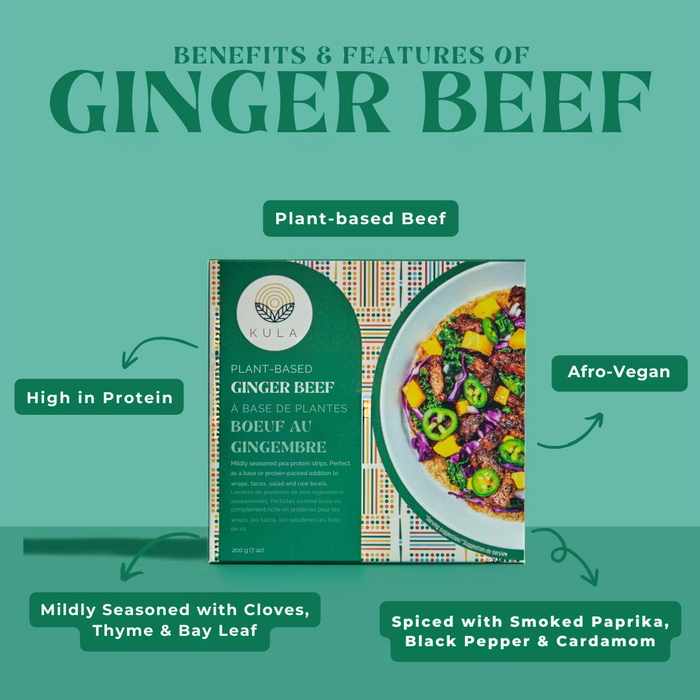The Top 5 BBQ Sauces Every Plant-Based Chef Should Stock
The Top 5 BBQ Sauces Every Plant-Based Chef Should Stock
Blog Article
Everything About Healthy And Balanced Food: Benefits of Enjoying Plant Based Choices
The discussion surrounding plant-based diets has gained substantial attention over the last few years. Many people are discovering the potential wellness benefits, dietary advantages, and environmental impacts related to these nutritional selections. As individuals end up being extra knowledgeable about their food's influence on wellness and sustainability, inquiries develop about the functionalities of taking on such a way of life. What certain changes can one expect, and just how might these options improve not only individual wellness yet likewise the world's future?
Comprehending Plant-Based Diet Plans
Although many individuals connect plant-based diet regimens primarily with vegetarianism or veganism, these diet regimens can encompass a wide array of consuming patterns that focus on whole, minimally refined plant foods. Such diets frequently consist of fruits, vegetables, whole grains, seeds, beans, and nuts, while getting rid of or limiting animal products. This adaptability allows individuals to tailor their dietary choices according to nutritional requirements and individual preferences. Some may embrace a primarily plant-based diet regimen while still occasionally consuming meat or dairy products, often referred to as a flexitarian strategy. The emphasis remains on integrating even more plant foods, which can cause a varied array of meals and flavors. Comprehending these different analyses of plant-based consuming is important for valuing its ease of access and allure in contemporary food culture.
Health And Wellness Conveniences of Plant-Based Foods
The health and wellness advantages of plant-based foods are significant, providing a nutrient density benefit that sustains general wellness. Research study indicates that these foods can enhance heart wellness and play a vital duty in efficient weight administration. By incorporating more plant-based choices, individuals may enhance their dietary choices and promote lasting wellness.
Nutrient Density Benefit
Nutrient density plays a necessary function in the health and wellness advantages of plant-based foods, making them an engaging selection for those looking for a well balanced diet regimen. Plant-based foods, such as fruits, veggies, beans, nuts, and entire grains, are usually abundant in necessary vitamins, minerals, and antioxidants while being lower in calories. This high nutrient thickness enables people to consume less calories while still fulfilling their dietary requirements. Furthermore, these foods are loaded with dietary fiber, advertising digestive system wellness and assisting in weight management. By including nutrient-dense plant-based alternatives, consumers can enhance their general health and wellness, support their body immune systems, and minimize the danger of chronic diseases. Inevitably, the nutrient density of plant-based foods underscores their importance in a health-conscious lifestyle.
Heart Wellness Enhancement

Weight Management Assistance
Along with promoting heart health and wellness, a plant-based diet regimen can substantially help in weight management. This nutritional technique highlights entire foods such as fruits, vegetables, vegetables, nuts, and whole grains, which are generally reduced in calories and higher in fiber compared to animal-based items. The high fiber content helps boost satiety, decreasing general calorie intake. Additionally, plant-based diet regimens are frequently rich in necessary nutrients while low in undesirable fats, making it easier to keep a healthy and balanced weight. Plant Based Beef. Study suggests that individuals who take on a plant-based way of life tend to have lower body mass indexes (BMIs) and experience even more successful fat burning compared to those that eat meat-heavy diets. Welcoming plant-based alternatives is a tactical selection for reliable weight monitoring.
Nutritional Value of Plant-Based Components
Plant-based components are rich in essential nutrients, using a diverse array of vitamins, minerals, and antioxidants that add to general health and wellness. A contrast of protein resources discloses that while animal items are typically deemed superior, many plant-based options offer ample protein and various other advantageous substances. Comprehending the nutritional value of these ingredients can help people make educated dietary selections.
Vital Nutrients in Plants
Nutrient-rich ingredients found in plants provide a varied range of important nutrients that contribute considerably to general health and wellness. These active ingredients are abundant in vitamins A, C, and K, which support immune function, vision, and blood clotting, respectively. Additionally, plants provide important minerals such as potassium, magnesium, and calcium, critical for heart health, muscular tissue feature, and bone stamina. The existence of fiber in plant-based foods aids food digestion and advertises a healthy digestive tract microbiome. Antioxidants, located abundantly in vegetables and fruits, aid combat oxidative stress and anxiety and reduce swelling. Several plant foods are reduced in calories yet high in nutrients, making them a superb selection for those seeking to maintain a healthy and balanced weight while guaranteeing excellent nutrient intake.

Contrasting Protein Sources
Healthy protein resources differ considerably in their nutritional accounts, with plant-based active ingredients supplying special advantages. Unlike animal proteins, which often contain hydrogenated fats and cholesterol, plant healthy proteins have a tendency to be lower in these undesirable components. Legumes, nuts, seeds, and whole grains are abundant in essential amino acids, fiber, vitamins, and minerals. Lentils provide high protein material alongside considerable iron and folate, while quinoa is a total protein, using all nine necessary amino acids. Furthermore, plant-based proteins are often accompanied by anti-oxidants and phytochemicals that sustain total health and wellness. The change to plant-based protein resources not just enhances dietary intake yet additionally straightens with sustainable nutritional methods, minimizing ecological impact and promoting long-term health and wellness advantages.
Environmental Effect of Plant-Based Consuming
As recognition of environment adjustment expands, several people are exploring sustainable dietary selections that can substantially minimize their ecological impact. Plant-based consuming has actually become a substantial factor to minimizing greenhouse gas discharges, which are mainly connected with animals manufacturing. The growing of fruits, vegetables, grains, and vegetables typically needs less sources, such as water and land, contrasted to animal farming. In addition, plant-based diet plans can bring about lowered deforestation, as much less land is required for grazing animals or expanding animal feed. By changing in the direction of plant-based choices, customers can sustain biodiversity and promote much healthier ecological communities. On the whole, welcoming plant-based consuming not just advantages individual wellness but also stands for a vital step towards environmental sustainability and preservation efforts.
Conquering Common Misconceptions
While numerous individuals recognize the advantages of a plant-based diet plan, a number of false impressions frequently deter them from totally welcoming this way of life. A common idea is that plant-based diets lack adequate healthy protein; nonetheless, many plant sources, such as vegetables, nuts, and tofu, offer ample healthy protein. In addition, some presume that this diet plan is expensive, when as a matter of fact, staples like beans, rice, and seasonal vegetables can be quite budget friendly. An additional misconception is that plant-based eating is extremely restrictive, whereas it in fact uses a diverse variety of tastes and foods. Numerous worry that a plant-based diet regimen may lead to shortages, yet with appropriate preparation, individuals can get all needed nutrients, including minerals and vitamins, while appreciating a broad variety of tasty meals. Vast Tips for Transitioning to a Plant-Based Way of life
Making the shift to a plant-based way of life can be an enhancing experience, though it often needs some guidance to browse the initial adjustments. First, people are encouraged to start gradually, integrating even more fruits, vegetables, vegetables, and whole grains into their meals while lowering meat and dairy products intake. Meal preparation is essential; preparing an once a week food selection can help alleviate the adjustment and protect against final unhealthy options. Checking out brand-new recipes and cooking approaches can additionally boost the experience and keep enjoyment concerning plant-based consuming. Furthermore, joining support groups or neighborhoods can supply inspiration and share important pointers. Lastly, staying notified concerning nourishment warranties well balanced dishes, preventing deficiencies while promoting a healthy and balanced, satisfying plant-based way of life.
Delicious Plant-Based Dish Ideas
Discovering delicious plant-based dish ideas can motivate individuals to accept a more healthy diet. One preferred option is a hearty quinoa salad, including cherry tomatoes, cucumber, and a zesty lemon-tahini dressing. One more fave is a tasty lentil stew, loaded with carrots, celery, and fragrant herbs, best for a calming dinner. For morning meal, over night oats made with almond milk, chia seeds, and covered with fresh berries provide a healthy begin to the day. Additionally, a lively veggie stir-fry with tofu and a selection of vivid veggies can be a fast yet satisfying dish. Creamy avocado toast on whole-grain bread, sprayed with seasonings and seeds, uses a simple yet flavorful treat. These dishes showcase the variety and richness of plant-based eating.

Frequently Asked Concerns
Can a Plant-Based Diet Plan Provide Sufficient Healthy Protein?
The question of whether a plant-based diet regimen can give adequate protein prevails. Countless resources, consisting of legumes, nuts, seeds, and entire grains, can meet healthy protein needs efficiently, sustaining a nutritious and well balanced diet for individuals.
Are Plant-Based Diets Ideal for Children?
The suitability of plant-based diets for kids depends on mindful planning. Adequate nutrients have to be assured, including vitamins, healthy proteins, and minerals. BBQ Sauces With appropriate assistance, such diet regimens can sustain healthy and balanced growth and development in youngsters.
Just how Do I Dine Out on a Plant-Based Diet regimen?
Eating in restaurants on a plant-based diet involves looking for dining establishments with varied food selections, asking for adjustments, and checking out vegan-friendly options. Planning ahead and connecting dietary preferences can boost the dining experience while preserving nutritional options.
What Are Common Allergens in Plant-Based Foods?
Typical irritants in plant-based foods include soy, gluten, nuts, and seeds - BBQ Sauces. Individuals adhering to a plant-based diet regimen should understand these irritants and review labels carefully to stay clear of adverse reactions and guarantee safe intake
Can Plant-Based Diets Help With Fat Burning?
Research suggests that embracing a plant-based diet plan might assist in fat burning because of its typically lower calorie density and greater fiber web content. This mix can boost satiation, helping individuals manage their caloric intake effectively. Numerous people connect plant-based diet plans generally with vegetarianism or veganism, these diet plans can include a broad range of consuming patterns that focus on entire, minimally refined plant foods. Nutrient density plays a crucial function in the health and wellness benefits of plant-based foods, making them a compelling choice for those looking for a well balanced diet. Plant-based diets have been shown to noticeably enhance heart health and wellness, as they frequently include elements that sustain cardio feature. In addition to promoting heart health, a plant-based diet can substantially assist in weight administration. A common idea is that plant-based diet regimens lack sufficient healthy protein; nevertheless, various plant sources, such as beans, nuts, and tofu, supply sufficient protein.
Report this page